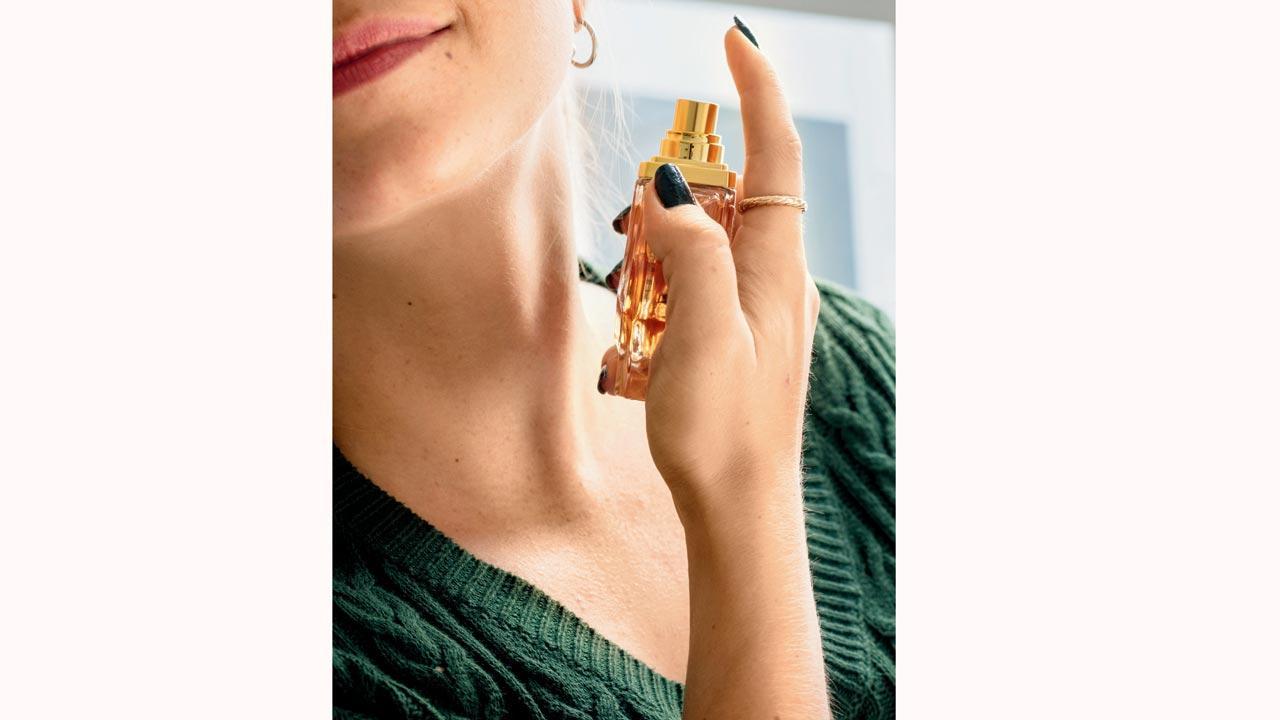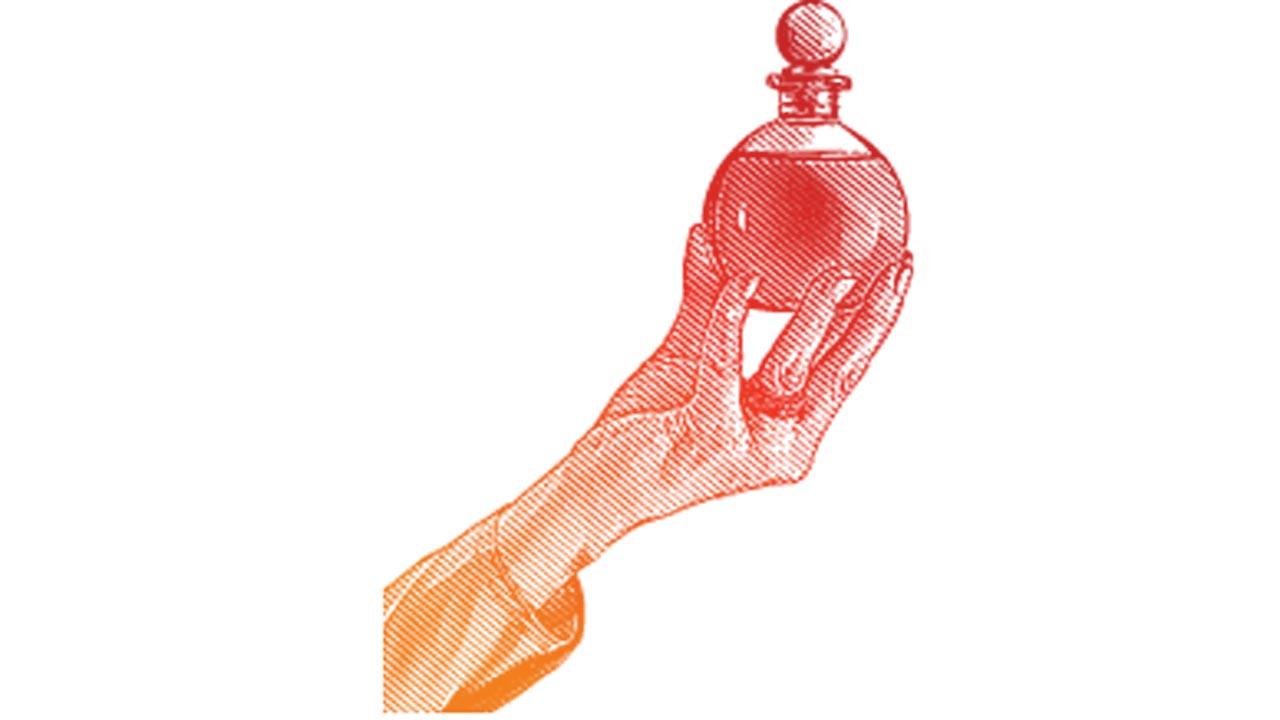Would you buy a perfume you haven’t sniffed? Digital creators specialising in scent recommendations are gaining trust and standing apart from the choked beauty creator economy

The scent influencers have help from India’s perfume market that’s rapidly growing. Exhibiting a compound annual growth rate (CAGR) of 15.23 per cent during the forecast period between FY2023 and FY2030, it is all but promising
Can a video describing a fragrance get over a million views?
ADVERTISEMENT
It turns out, it can. According to YouTube, there have been more than 770 million views on videos related to perfumes in the past 90 days.
Fragrance is the latest niche that digital creators have sniffed out. While the category is well established in the West, it’s only now gaining traction in India. As more homegrown brands launch in India, those with a nose for perfumery are jumping on to review new releases and recommend a scent for every mood.
 Megha Seehra, digital creator; Vaibhav Gupta; Manan Gandhi; Jameel Sheikh
Megha Seehra, digital creator; Vaibhav Gupta; Manan Gandhi; Jameel Sheikh
But how do you explain what a perfume smells like on video? Screens are yet to develop the scratch-and-sniff feature. And so, creators have to resort to creativity. Delhi-based digital creator Megha Seehra says, “I once tried a perfume that smelt to me like chocolate-drizzled strawberries. So, that’s exactly how I described it.” Seehra’s content often describes the mood, the ingredients, and what time of day the perfume is fit for. For instance, she describes a perfume to have a European summer mood, honey and fruity notes, and one that’s fit to wear during the day.
Jameel Shaikh’s content describes the notes: top (initial smell), middle (after one to two hours), and base (after the perfume dries). You will find him explaining that a perfume has notes of lavender, saffron, or Damascus rose—widely declared as the most fragrant of roses with origins in Central Asia-- and go on to explain how this one smells different from a regular red rose you encounter at your neighbourhood florist.
Shaikh, who is a Vadodara resident, says he had a nose for good perfumery. During the COVID-19 lockdowns, he began creating content with the perfume bottles he had collected. He goes by @Fragrancejam on Instagram and has 198K followers, which makes him one of the biggest scent-fluencers in India today. “I just did it [began creating content] to be able to justify why I was buying so many perfumes, which can be costly”, he laughs. Shaikh started by checking perfume labels to understand the notes and ingredients; it’s only after he watched influencers from the West, did he realise that others take fragrance seriously too.
 Pic/iStock
Pic/iStock
Seehra had a similar journey. While she is already a 711k followers-strong fashion creator on Instagram, she began her scent-fluencing journey as @scentstoriesbymeegha two months ago. “I’m very passionate about smelling good. I believe that a great outfit needs a matching fragrance”, she tells mid-day. How does she match the two? “I spend time with my fragrances. I usually pick one to match my mood. Do I want to feel sexy, happy, or powerful? I express myself with my fragrance.”
Shaikh says that till a few months ago, he had not seen any women enter the category. Since it’s still a niche category, is it wise for creators to venture in? “Diving into a niche segment, such as fragrance within the broader beauty category, helps creators establish themselves as experts in a specific area. This specialisation can lead to a more engaged and loyal audience, as followers often seek detailed and specific information that generalists may not provide. Additionally, niche creators face less competition, making it easier to stand out and attract brand partnerships that are highly targeted and relevant to their content”, says Vaibhav Gupta, co-founder and CPO of KlugKlug, an influencer marketing software tool.
The scent influencers have help from India’s perfume market that’s rapidly growing. Exhibiting a compound annual growth rate (CAGR) of 15.23 per cent during the forecast period between FY2023 and FY2030, it is all but promising. “There are a lot of indie brands cropping up. And, there’s a premiumisation in this [fragrance] category”, says Manan Gandhi, founder of Bombay Perfumery, the Mumbai-headquartered fragrance house that claims to pout a modern twist on Indian ingredients. He adds that his brand has worked with influencers in the past, but now relies strongly on performance marketing. Apart from that, he also prefers marketing at events and creating experiences where customers can experience his products first-hand.
For Shaikh, being an early adopter of the niche has proved beneficial. He says that the growing number of perfume brands in India means he has several requests for brand partnerships. Seehra adds, “Unlike beauty, which is a crowded category on social media, this market [fragrance] has potential.”
What’s the future of scent-fluencing then? The answer lies beyond brand deals. Like in the West, it won’t be long before we see creators craft their own unique fragrance.
 Subscribe today by clicking the link and stay updated with the latest news!" Click here!
Subscribe today by clicking the link and stay updated with the latest news!" Click here!







